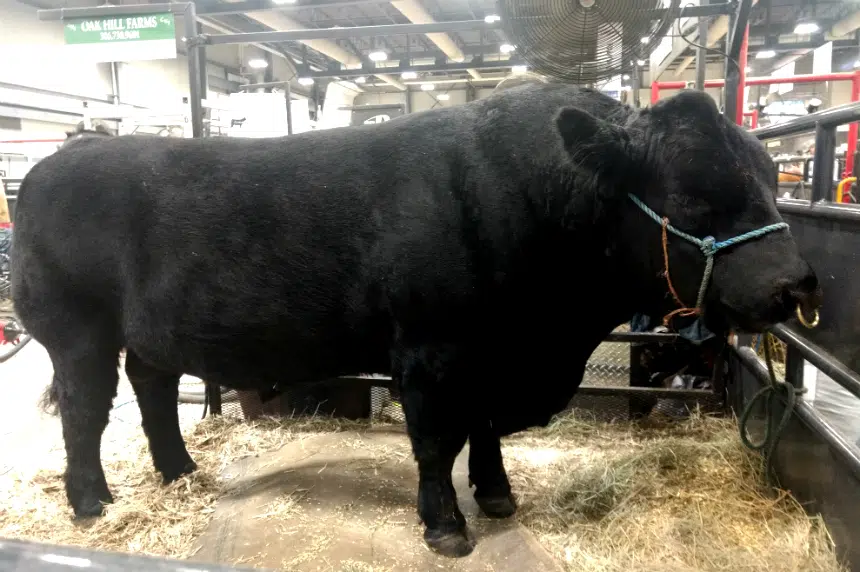For close to three decades, one man has crossed the Atlantic to get his hands on some good genes.
James Barber is from Cheshire, England and has worked in the cattle business his entire life.
He’s been visiting Agribition for 27 years, at first to find a way to breed better animals. Over the years, he’s bought genetic material like bull semen and embryos.
“We were looking for something a little bit different, trying to put in a bit of size back home,” Barber said.
“You always need new bloodlines, ways to improve what you’ve got. It’s not easy but if you keep looking, you’ll find (something).”
Barber isn’t the only one. Agribition President Bruce Holmquist estimates hundreds of international visitors are interested in Canadian beef genetics.
Holmquist said he believes they come for the reputation of Canadian products, the service and favourable exchange rate.
Whatever the reason, it’s a source of pride that they shop here.
“There’s nothing that makes me more proud, personally, than to see the maple leaf accepted so well,” Holmquist said.
“It gives you a real sense of pride that commerce is done through Agribition that benefits all of Canada.”
Barber looks for cattle that will produce the most meat and will consume the least amount of feed and other input costs.
Such desirable traits are selectively-bred and animals come with ratings on how well they perform in those areas.
“There’s a thing called hybrid vigour. If you cross one pedigree with another pedigree that’s totally unrelated, you get a proven six, seven per cent increase in performance,” he said.
The process involves science and lot of numbers, but Barber said the eye test is still important. For example, good legs are a must because cattle need to walk around to get their food and water.
“An animal with big performance figures and bad legs is like having a Rolls Royce with a flat tire,” Barber said. “Absolutely useless.”











